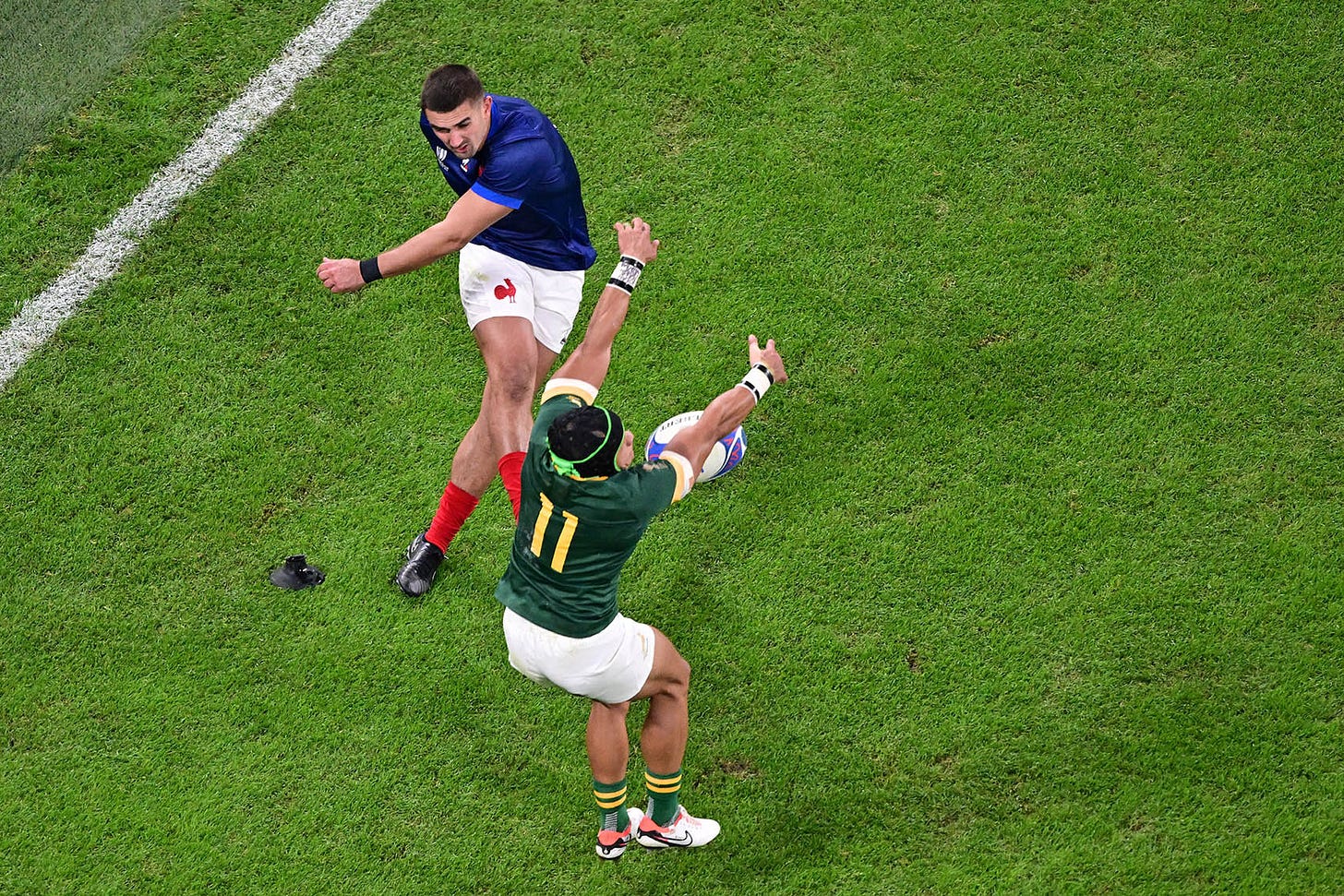The game that means everything
The Springboks and the All Blacks are playing for something that means much more than a trophy: the very soul of the game
The South African Springboks go to war with the New Zealand All Blacks on Saturday night for rugby’s premier prize. It’s a game that means everything to everyone, both practically and philosophically.
No other final could have been more tantalising. These are the game’s two great sovereigns. The only champions of the last two decades, each with three titles and looking to pull clear of the other. And of course, it is the first time we’ve had a repeat of the 1995 final – Nelson Mandela’s great act of sporting reconciliation.
Rugby has always carried a level of symbolism, and a penchant for a philosophical natter, that belies the brutal nature of the game. This World Cup has been no different.

The first great question has already been answered: the promised dawn of the Northern Hemisphere has proved to be a false one. Like with cricket, England has long been surpassed by its former colonies in the game that it codified. Their neighbours have been even worse off. Bar one English title in 2003, no other European name has ever been etched on the Web Ellis Cup – its very name derived from an Anglican clergyman.
That was supposed to change in the year of Antoine Dupont, France’s dynamic scrum-half; and in the final World Cup of Ireland’s Johnny Sexton. But they were dispatched by the Boks and All Blacks respectively.
Now those two will battle for a meta-physical honour: the spirit of the game. On one side is an island nation whose identity is entwined with beautiful, running rugby. On the other is a force forged in the heat of the highveld, relentless in its grind for every centimetre of territory.
The beauty and the beast narrative looms large over the game – even if it can sometimes turn asinine. The Springboks in particular face ridiculous inquisitions after every victory, with earnest calls from pundits for rule changes to mitigate their “aggressiveness”.
The Boks have also given us many moments of inspiration over the past month. Manie Libbok’s audacious, no-look crossfield kick is about as close as you’ll ever get to seeing Ronaldinho on a rugby pitch. Cheslin Kolbe’s quick thinking and faster feet charging down the French kicker in the quarterfinals will live long in memory.
That said, they have more scrumming power, ball-carrying ability and depth than any other side in world rugby. Their unmatched ability to swap out almost the entire forward line with another “bomb squad” of equally talented fresh substitutes has become a meme. The South African way is to put their opponents under the mill until they make mistakes that can be converted into penalties or open territory.
New Zealand, by contrast, represents the romance of rugby. From the pre-match haka to the obsessive need to play attractive ball, the All Blacks safeguard all the traditions that the self-proclaimed purist holds dear.

Since their opening loss, those lofty ideals have translated into devastating attacking play this tournament, with the side shooting past everyone else on the tries tally.
As their backline stretch the play, lanes invariably open up for runners like Will Jordan to dart into. Jordan’s hat-trick in the semifinal took him to eight tries, tying him for most in a single World Cup with Jonah Lomu, Julian Savea and Bryan Habana – a list dripping with nostalgia.
One of rugby’s bizarre facts is that the late, great Lomu never scored against South Africa – a truth embodied by his improbable shutout in the 1995 game. If the Springboks once more nullify his successors, no fan in the country will give a damn how they did it.



